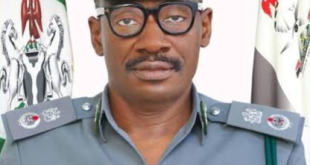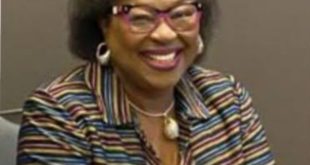
Mike Igbokwe (SAN) is the second Vice President of the Nigeria Maritime Law Association (NMLA). In the interview with MMS Plus, he speaks on some of the challenges with maritime laws, the pending maritime bills at the National Assembly and the place of training for the legislature as well as judges.
Excerpts:

What has been the limiting factor in the formulation and implementation of the requisite maritime laws?
The major problem has been lack of awareness about maritime laws and policies. Those who formulate policies and enact laws and those who implement them; lack some requisite knowledge about maritime. Note that until these policies have been enacted into laws and implemented, the process isn’t complete.

Nigeria needs to develop her Cabotage trade. As a nation, we had a National Shipping Policy Act in the past. One of the plans was to develop deep-sea shipping to ensure the nation could complete in international shipping. However, it didn’t bring the expected benefits to the maritime sector and the reason was that we could not complete with the highly subsidized foreign owned ships in the international shipping and we didn’t have the necessary technical managerial ability to complete.
Another problem was that while trying to develop international shipping we abandoned domestic shipping which is carriage of goods and passengers from point to point within the Nigeria territorial waters or up to 200 nautical miles from the baseline as the Cabotage Act puts it in defining the exclusive economic zone of Nigeria. Cabotage is a veritable tool to develop shipping. Nigeria needs to develop domestic shipping in such as way that the nation would be empowered in areas such as operating the ships, doing the repairs seafaring, etc.
The United States of America has the Jones Act which is their Cabotage policy because they believe that it would help to develop their domestic shipping as well as international shipping and it has been successful. Nigeria should grow strong enough to dominate domestic shipping or Cabotage to ensure we complete regionally and also internationally.
The maritime sector is large and lucrative. We should ensure that we have seafarers, ships, and ensure that during emergencies no Nigerian ships would be missing. We should be able to track Nigerian ships and also increase the number of ships registered in Nigeria. The number of ships a nation has in its register determines the level of respect that other nations would have for that country. Liberia has more ships in its registry than Nigeria. This is because of FOC arrangement which creates a liberal environment and reduced cost. A lot of foreigners fly the Liberian flag as a result of this.
Nigeria should start by having a clear policy in place, and then we would proceed to the implementation before we begin to count our achievements on the basis of the policy implementation. There might also be need to do a five (5) year review of the success or otherwise of the policies. If there are loopholes and gaps we might need to fine-tune them and improve them. We also need to have a port master plan.
NPA is a major revenue generating agency for the Nigeria government but we need to have policies in place that would enhance import and exports because this is the only way to ensure the revenue from the maritime industry doesn’t dry up. If we don’t have the right policies, there would be no ships coming in, no import duty to be paid and no income or revenue for the government.
Landlocked states have a lot of challenges because they don’t have access to the sea .They have to rely on coastal states to permit their goods to come in via their coastal waters. Ships, warships, etc., also aid a nation’s defense from external aggression and wars and also protects your coastal area.
All these underscore the need for the policy makers, i.e legislature to be well informed about maritime issues. Why did you kick against a proposed maritime conference for the legislature?
The legislature wanted the kind of seminars we organized for judges but I said no! Although I understand the need to train the legislature to appreciate the essence of domestication and also on law making, you can’t call the maritime seminar for judges a training. At seminars, we come to share ideas, papers are delivered, and people comment on them and at the end there would be a communiqué from the comments as well as the papers delivered.
My opinion is that a lot of effort and resources would go into the organization of such conferences. Despite the fact that the maritime seminar for judges holds in Abuja, you will still find that the judges wouldn’t attend.
Why don’t we embed one or two topics in the maritime seminar for judges that would make it appeal to the legislature on law making and then mute them to attend .It could become Maritime seminar for legislature.
Do you think such training would guarantee you speedy passage of the maritime bills pending at the National Assembly?
I believe so. This training is important because the legislature are from different backgrounds. Most of them are not even lawyers let alone maritime lawyers. They need information by way of training and it should be tailored in such a way that they would understand what they are supposed to do and help them to improve on the law making process. They need special training unlike the Maritime Seminar for Judges where we discuss several issues tailored towards creating awareness on issues that should guide the judges on maritime cases.
We shouldn’t forget that getting into the National Assembly is a function as a result of success at elections. An experienced maritime legislature who has learnt so much about maritime laws and the maritime industry would not be able to return to the sector after years if he doesn’t win the next elections.
We would always have new people coming into the legislature and they are neither lawyers nor maritime practitioners
From the perspective of a maritime lawyer, what is the biggest challenge facing maritime in Nigeria?
For maritime law, one of the challenges is the lack of training. However, the choice Nigerians make as to what course they want to study is also a factor. If you don’t want to study maritime law you would get it. I wanted it that is why I went to study it.
Nigeria also needs clear long-term maritime policies that will be implemented and also accessible to foreigners and locals that intend to do any business in Nigeria. Most of the maritime bills have been pending at the National Assembly and this has also hindered the growth of the industry.
Lack of scanners at the port is negating business at the ports, despite the effort of the Nigerian Shippers Council (NSC) enhance the ease of doing business in nation’s ports. How do we resolve it?
The Nigerian Shippers’ Council (NSC) and the Nigeria Customs Service (NCS) are collaborating to fix the problem of scanners. These scanners are crucial tools for the Customs job of examining containers.
What was the highpoint of today’s meeting with the Shippers’ Council?
I would say has rekindled the bond between the Nigerian Maritime Law Association (NMLA) and the Shipper’s Council. The agreement reached by both parties to work together in order to develop the maritime industry in the country. The meeting also provided ample space for interaction and networking opportunities.
 MMS PLUS NG – Maritime, Aviation, Business, Oil and Gas News Online Newspaper with coverage in Maritime, Oil and Gas, Aviation, Power and Energy as well as Financial News
MMS PLUS NG – Maritime, Aviation, Business, Oil and Gas News Online Newspaper with coverage in Maritime, Oil and Gas, Aviation, Power and Energy as well as Financial News









